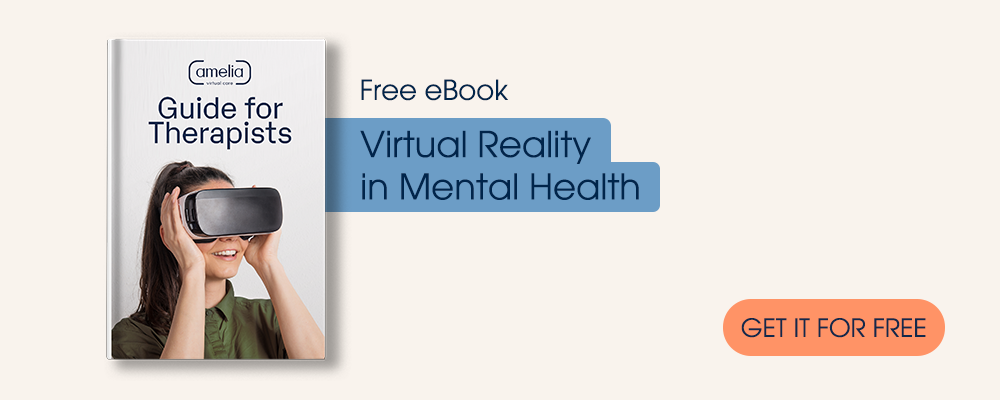A Brief Analysis of “Efficacy of a mindfulness-based programme with and without virtual reality support to reduce stress in university students: A randomized controlled trial”
Mental health among young people, especially university students, has become a growing concern over the past decade. Various studies have shown elevated levels of stress in this particular community, with prevalence rates reaching as high as 37%.
The impact of such mental and emotional strain can invite the psychological distress and possibility of psychopathologies that include substance abuse and generalized anxiety disorder, to name a few. These mental conditions, if left untreated, can then leave an unforgivable mark on the long-term health and livelihood of these individuals.
According to the Global Burden of Disease and the Impact of Mental and Addictive Disorders, mental and addictive disorders contributed to 162.5 million disability-adjusted life years lost worldwide in 2016. Furthermore, stress and other psychopathological symptomatology are well known to culminate in high costs, with one 2004 study approximating the cost of depression in Europe at €118 billion.
For this reason, and as it relates to this population, Amelia Virtual Care explores the highlights and possible implications of the latest publication in Behaviour Research and Therapy. Entitled “Efficacy of a mindfulness-based programme with and without virtual reality support to reduce stress in university students: A randomized controlled trial”, the study employs Psious’ virtual reality (VR) technology in a three-arm intervention trial while testing the effects of mindfulness-based programs (MBP) and relaxation programs on university students’ perceived stress.
The Study’s Findings
The 6-week parallel randomized controlled trial with assessment periods at baseline, post-treatment and 6-month follow-up revealed three major findings:
- MBP and MBP + VR significantly decreased perceived stress when compared to the relaxation program at post-treatment
- When compared against the relaxation program at follow-up, MBP + VR significantly decreased perceived stress with a large effect size
- MBP + VR demonstrated more session adherence than either MBP or the relaxation program
If we draw our attention to these observations, we can uncover some initial conclusions that reiterate the promising role of virtual reality interventions in therapeutic settings, especially in combination with mindfulness techniques.
Stress and other psychopathological symptomatology are well known to translate into high costs, with one 2004 study estimating the cost of depression in Europe at €118 billion.
The Study’s Implications
Cognitive, behavioral and mindfulness-based programs have been shown to be effective in lowering stress levels and supporting better mental health. However, as the study references, adherence rates have been reported as low in university students, with attrition being reported as high as 63%.
Yet, this study highlights how virtual reality could contribute to lower attrition and improved adherence in individuals seeking therapy. VR does not act as a substitute to other, more conventional therapeutic approaches. Instead, when combined with personalized adaptations in sessions, VR offers the possibility to appeal to young people’s in-depth familiarity with technology.
It should come of no surprise, though. This population already sports wearable technology like fitness trackers and smart health watches on a daily basis. The interlacing tango between young people and technology is intensifying, and the use of VR in therapy anticipates that growing interdependence.
Finally, the findings showing significant reductions in perceived stress levels (MBP + VR) in this cohort raise an interesting question. Could the economic benefits of therapeutic interventions that include VR outweigh the initial technology costs? In other words, what could mental health professionals and, indirectly, society gain financially if evidence supporting the use of VR technology in therapy grows? While these matters of cost-utility are worth examining in future studies and analyses, we can rest assured that VR in mental health settings will not go away any time soon.
If you would like to discover more about virtual reality and how it could improve your sessions with patients, please contact us. We would love to review a demo session with you personally and answer any questions or doubts you may have!
PhD & paper reference:
- Modrego Alarcón. (2020). Eficacia de un programa de mindfulness, con apoyo y sin apoyo de la realidad virtual (RV), para la reducción del estrés en estudiantes universitarios: un estudio controlado y aleatorizado. Universidad de Zaragoza.
- Modrego-Alarcón, M., López-del-Hoyo, Y., García-Campayo, J., Pérez-Aranda, A., Navarro-Gil, M., Beltrán-Ruiz, M., … Montero-Marin, J. (2021). Efficacy of a mindfulness-based programme with and without virtual reality support to reduce stress in university students: A randomized controlled trial. Behaviour Research and Therapy, 142(December 2020), 103866. https://doi.org/10.1016/j.brat.2021.103866












